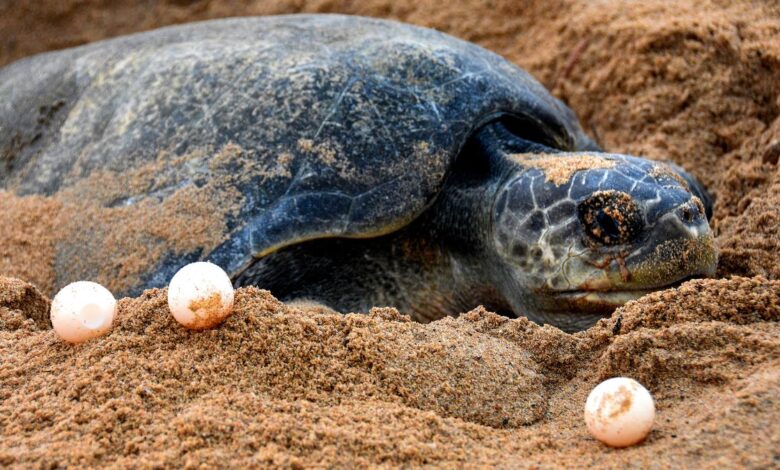Odisha’s Olive Ridley Mass Nesting Sites Closed to Visitors During Nesting Period

Bhubaneswar: In a bid to safeguard the nesting process of Olive Ridley sea turtles, the authorities in Odisha have announced the closure of mass nesting sites to visitors until the emergence of hatchlings. The decision comes as the mass nesting season, expected to commence in the next few days following the turtles’ mating season in the deep sea, approaches.
A notice issued by the office of the Principal CCF (Wildlife) & Chief Wildlife Warden highlighted concerns regarding visitors’ activities at the nesting sites. It stated that visitors, often using bright lights for observation and photography, along with inappropriate behavior, pose a significant disturbance to the natural nesting process and the emergence of hatchlings.
Furthermore, the notification emphasized the legal protection of Olive Ridley sea turtles under Schedule-I of the Wildlife (Protection) Act, 1972. Activities such as observation, photography, and videography of the turtles during nesting are considered ‘hunting’ under Section-2(16) of the Act, prohibited by Section-9.
As a result, all mass nesting sites of Olive Ridley sea turtles in Odisha will be closed to visitors during the nesting period until the emergence of hatchlings is completed. This measure aims to mitigate disruptions and ensure the successful nesting and hatching of these endangered turtles.
Every year, millions of female Olive Ridley turtles gather at Gahirmatha, Devi, and Rushikulya river mouths in Odisha for mass nesting. The previous year witnessed a record-breaking mass nesting event, with approximately 6.37 lakh Olive Ridley sea turtles arriving at Rushikulya coast from February 23 to March 2. Similarly, over 503,719 turtles laid eggs on the tranquil beaches of the sanctuary in Kendrapada district, which is recognized as the world’s largest rookery of sea turtles.
This natural phenomenon, known as ‘arribada’, sees hatchlings emerging from the eggs after 45-60 days, contributing to the conservation efforts of Olive Ridley sea turtles. By closing mass nesting sites to visitors during this critical period, authorities aim to uphold the protection and preservation of these endangered marine species for future generations.






